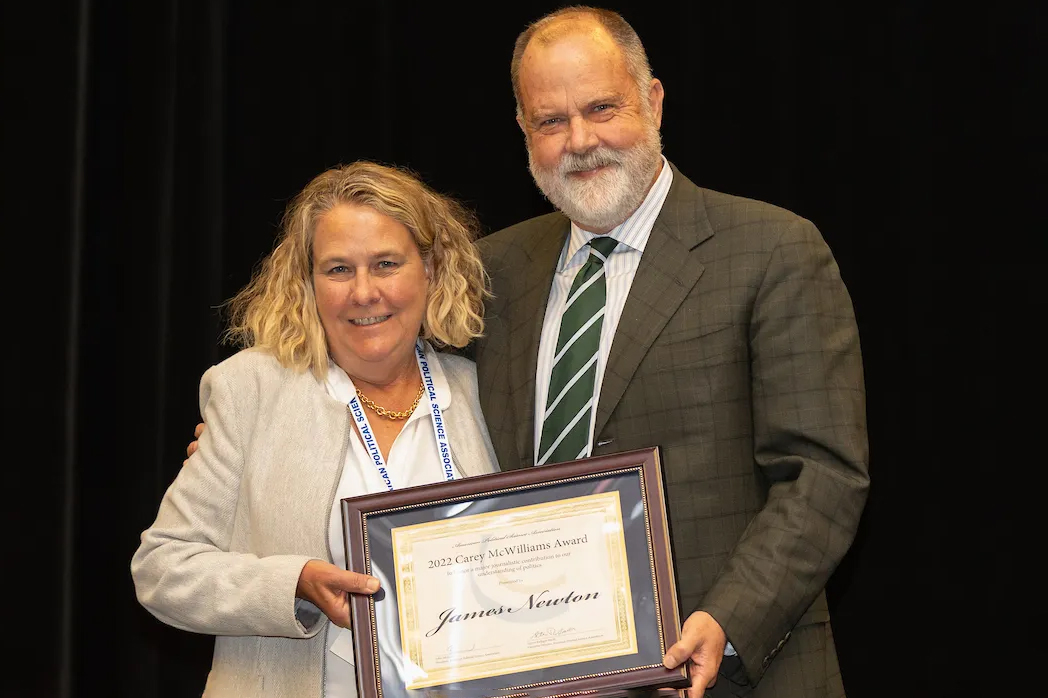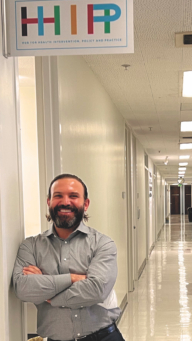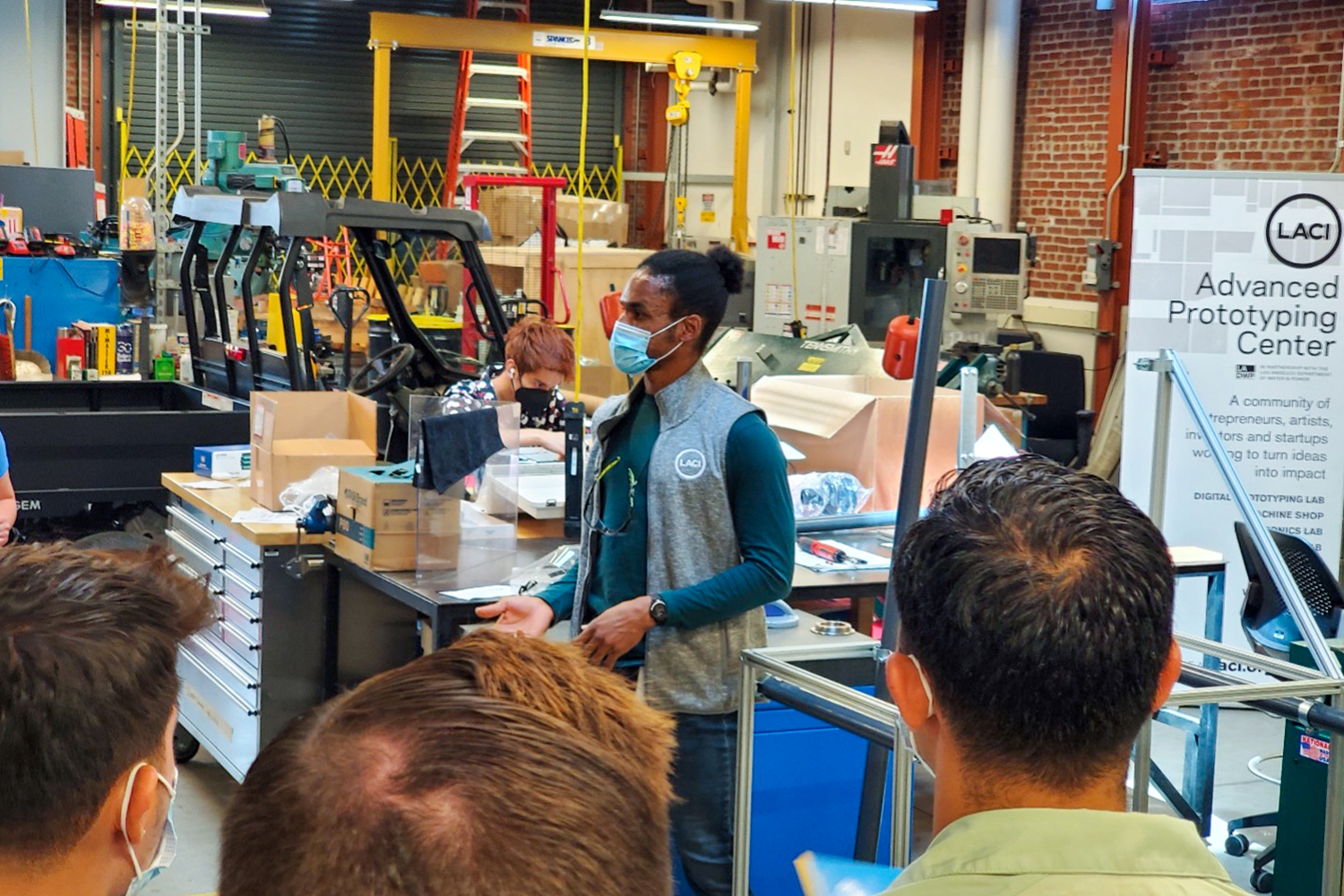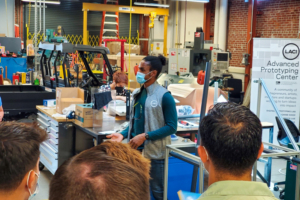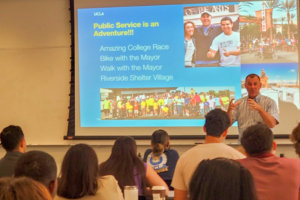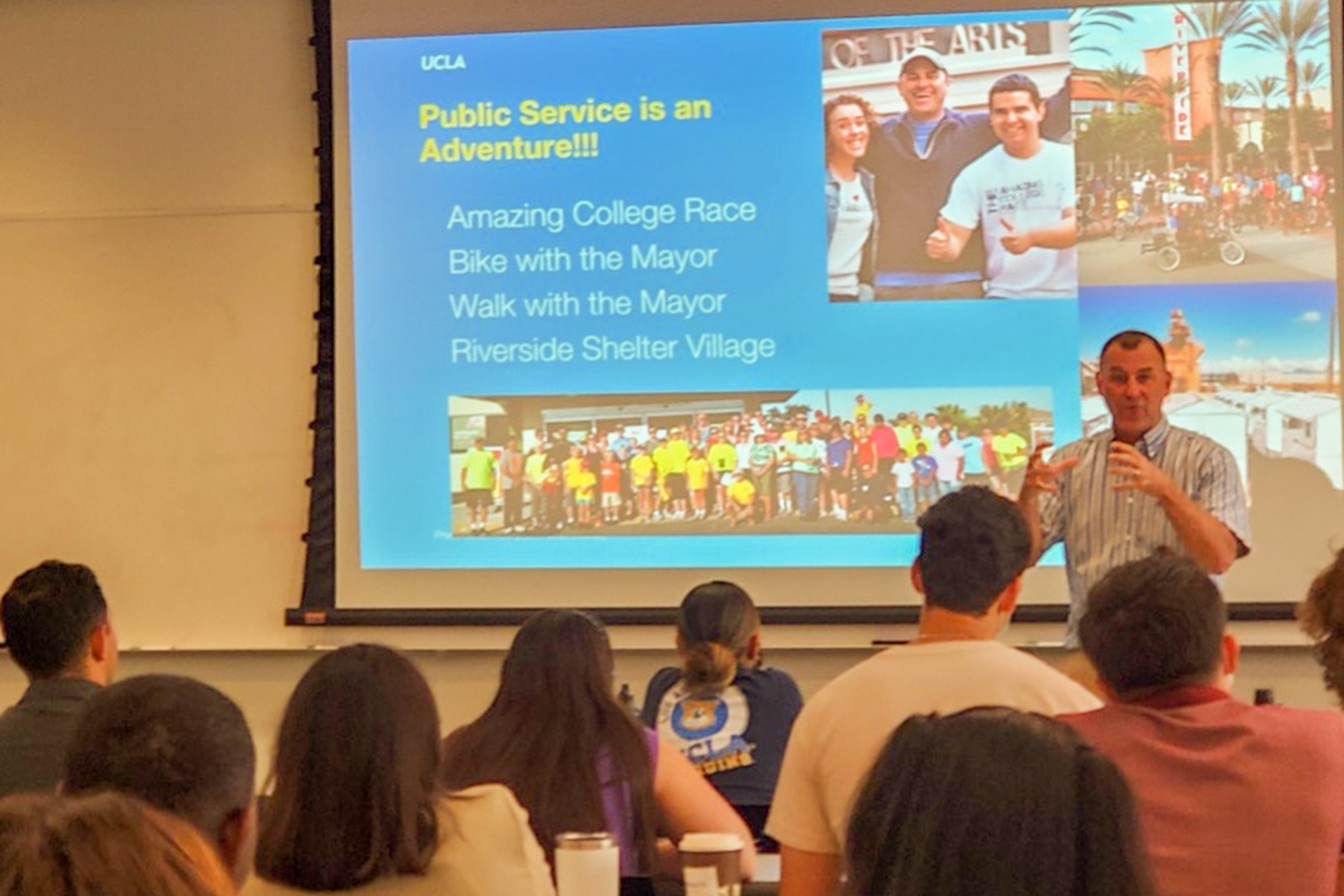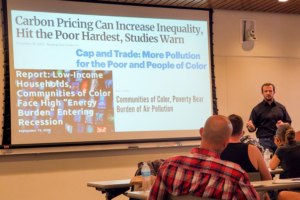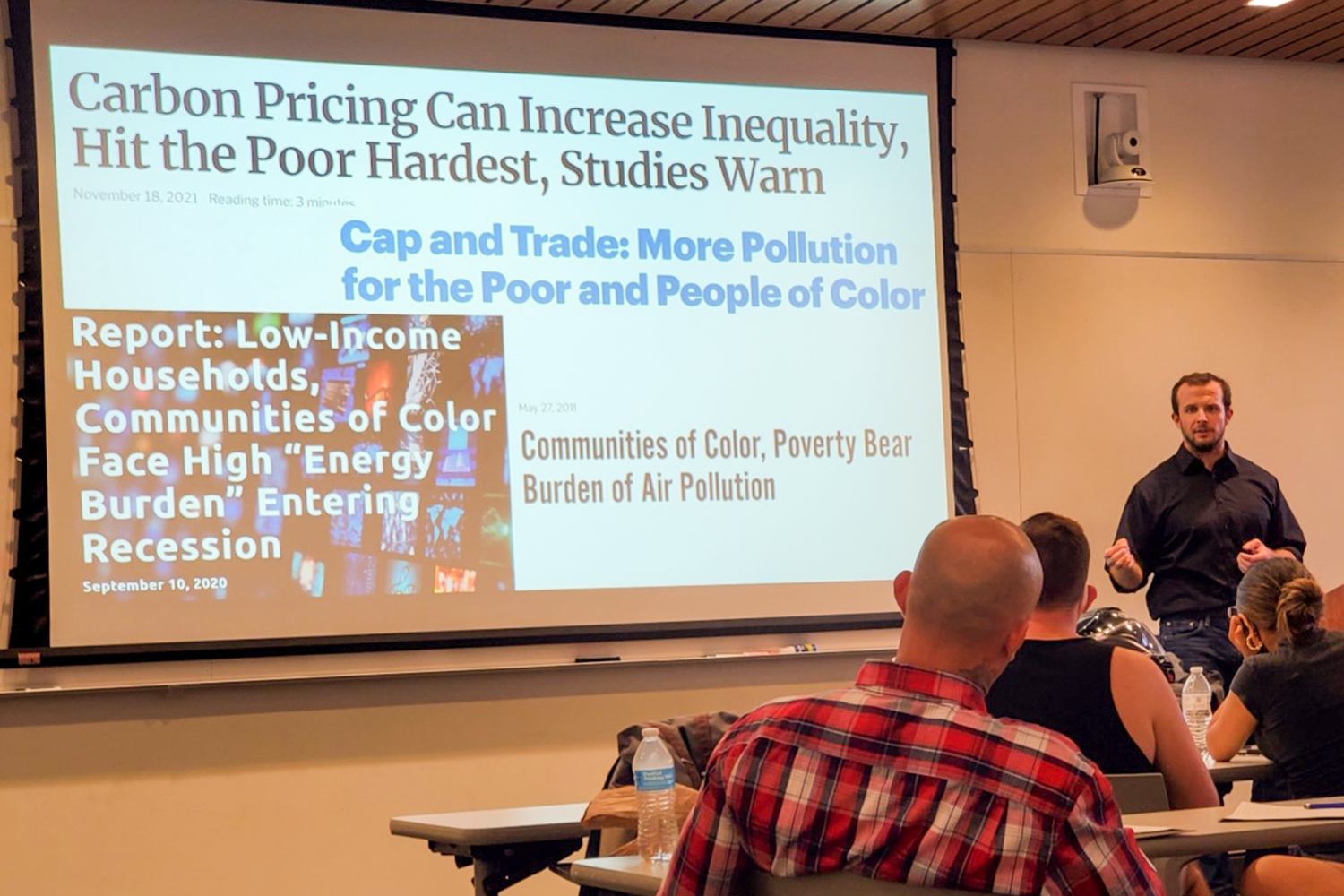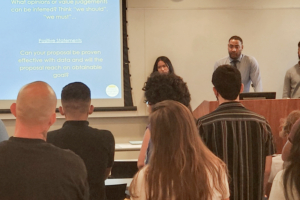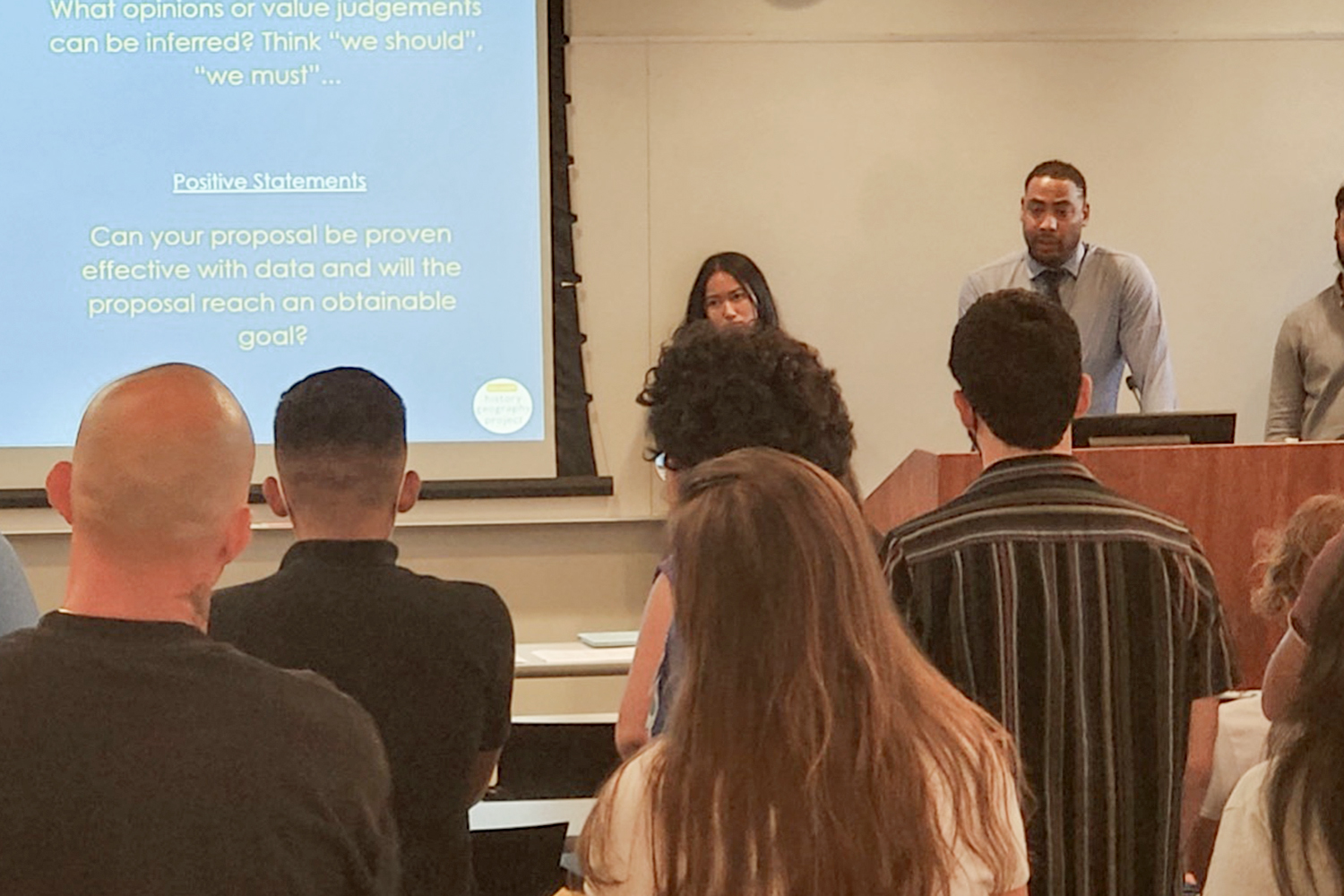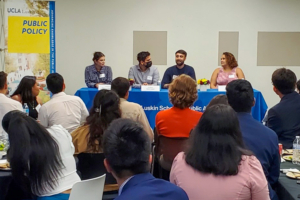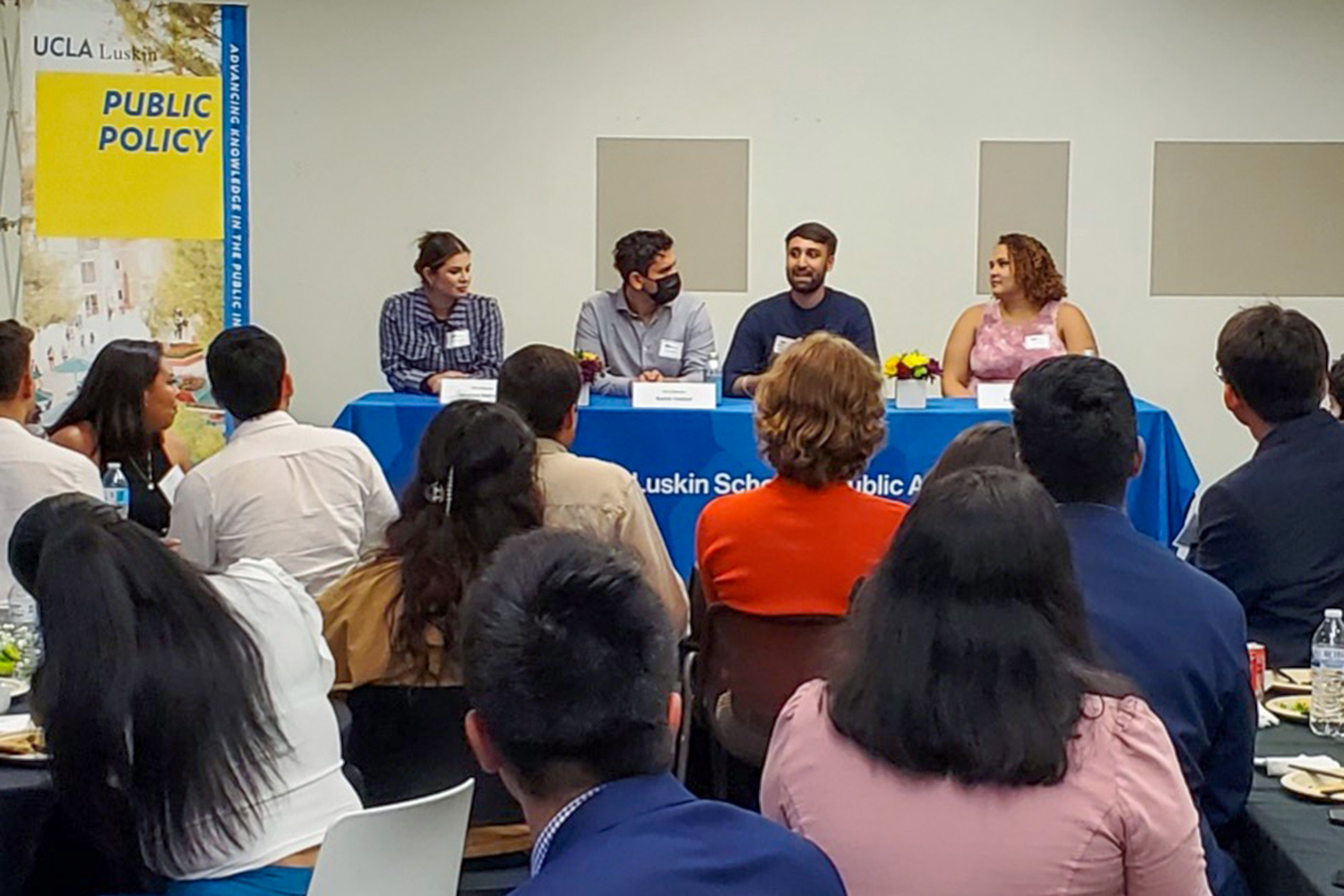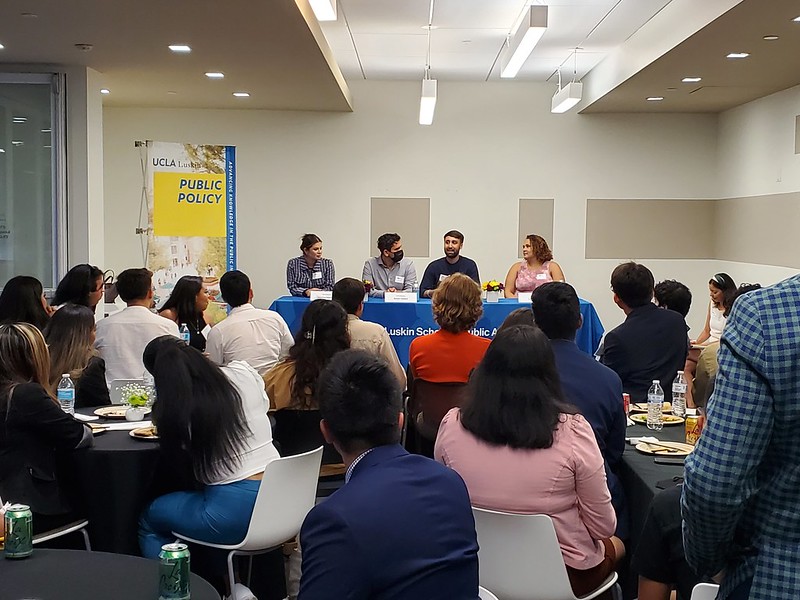In Support A look at longtime support from Liberty Hill Foundation, plus new initiatives and an overview of fundraising goals
LUSKIN FELLOWS AT LIBERTY HILL FOUNDATION TAKE ACTION
Thanks to the ongoing support of Stephanie ’81 and Harold Bronson ’72, Luskin Fellows have been interning with Liberty Hill Foundation since 2014, balancing their academic curricula with experiential work for a Los Angeles-based nonprofit that is “a laboratory for social change philanthropy.”
Luskin Fellows focus on building a just and equitable society, learning from and researching the efficacy of policies that are at the core of Liberty Hill Foundation’s progressive initiatives.
Luskin Fellows intern at Liberty Hill over the summer, focusing on coordinated projects that give practical application to their coursework while illuminating the grassroots efforts necessary to drive change.
Luskin Fellow Christian Lua, a second-year MPP student, had the opportunity to pivot from his work in the public sector to the Public-Private Partnerships team, exposing him to joint work.
The team has a diverse set of interdisciplinary duties with the Housing Justice team and Environmental Justice teams. “It is interesting to see how these duties and responsibilities dissect between each other,” Lua said.
Sonia Zamora, also a second-year MPP student, expressed gratitude for the opportunity to work on the foundation’s Youth Justice team.
“As someone who considers themselves a generalist in the Master of Public Policy program, I was more than delighted to undertake this opportunity,” said Zamora, who had no prior experience in either the work of foundations or youth justice initiatives.
It was a “formative and illuminating experience. I am thankful to have had this opportunity and so grateful to everyone on the Youth Justice team and the Liberty Hill staff for allowing me to be part of their important work,” Zamora said.
The Luskin School expects to continue its partnership with Liberty Hill, enabling future students to continue working on causes at the core of our shared mission.

Dean’s Associates Giving Society
UCLA Luskin is relaunching the Dean’s Associates giving society, whose members support the School at a leadership level of $1,000 or more. Dean’s Associates receive special communications and an invitation to intimate gatherings. Members also qualify to be a part of the university-wide Chancellor’s Society, another unique opportunity to connect more deeply with fellow UCLA alumni, parents, students and friends, as well as with the university itself. Chancellor’s Society donors of all recognition levels are invited to a special event hosted by Chancellor Gene Block at the end of the academic year.
If you’re interested in learning more about how you can get involved, contact Assistant Director of Stewardship Tilly Oren at toren@luskin.ucla.edu.
 GILBERT FOUNDATION FUNDS UCLA-HEBREW UNIVERSITY SCHOOL VIOLENCE COLLABORATION
GILBERT FOUNDATION FUNDS UCLA-HEBREW UNIVERSITY SCHOOL VIOLENCE COLLABORATION
A grant from the Rosalinde and Arthur Gilbert Foundation will support a new partnership between UCLA and the Hebrew University of Jerusalem focused on developing school violence prevention strategies to turn campuses into safe and welcoming places for children worldwide.
The Collaboration for Safe Schools is a two-year pilot program connecting scholars and practitioners globally and across disciplines
to share research and insights related to the complex underlying causes of school violence. Read more on page 11.
The Gilbert Foundation grant, awarded to UCLA and American Friends of the Hebrew University, covers half of the pilot program’s expected budget of $1.3 million.
The foundation invites other funders to “join this important initiative to create a safer and more peaceable world.”
SCHOOL SETS FUNDRAISING PRIORITIES
Faculty recruitment and retention, equity, diversity and inclusion (EDI) programs, internships and partnerships are among UCLA Luskin’s fundraising priorities.
Adding more doctoral fellowships to assist in recruiting PhD students is another priority. A strategic plan to further build fundraising at the Luskin School and increase support for student fellows throughout Los Angeles County also seeks to bolster professional internships for students pursuing an undergraduate public affairs degree.
Amid concern about threats to democracy, the School expects to expand programming, outreach and educational efforts relating to fostering good government. The vision looks beyond California, and a planned expansion of the Global Public Affairs program at UCLA Luskin is on the horizon.
UCLA Luskin’s efforts to enhance partnerships with local governments and policy experts will emphasize the role of civic society institutions in making governments responsible, pushing them ultimately to do more.
The School plans to improve the reach and efficacy of its initiatives in Los Angeles at all levels, from grassroots to governmental. Such programs are a launching pad for a deeper presence and future growth of the academic community, its current students and alumni.
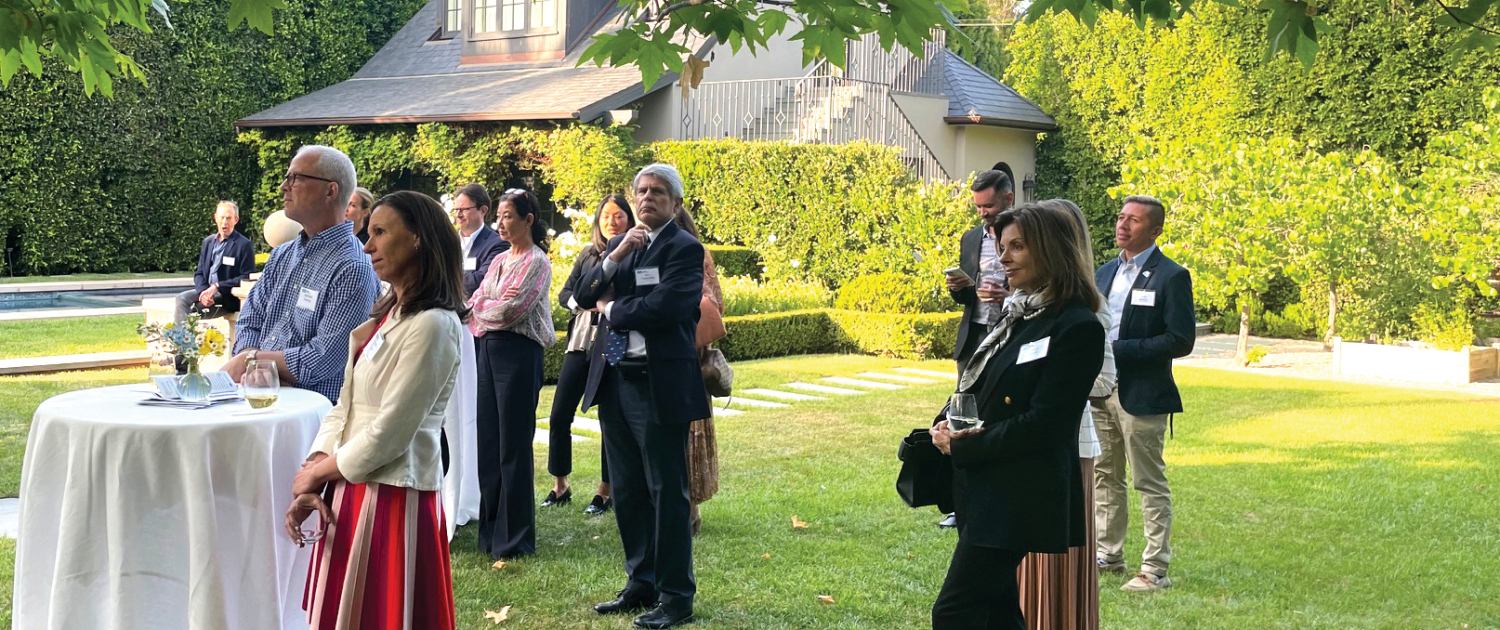
Students, professionals, board members and faculty gather at a fireside chat focusing on homelessness, housing and government. Photo by Laura Scarano
THE MANY WAYS THAT EDI FUNDS SUPPORT STUDENTS
Equity, diversity and inclusion efforts have long been a priority at UCLA Luskin as departments seek to provide financial support to students from underrepresented backgrounds and diversify the fields related to the School’s degree programs in public policy, social welfare and urban planning.
Such funds provide various types of assistance:
- internships with nonprofit community organizations that otherwise couldn’t afford to provide a paid internship. This is a double win: The student gets paid while gaining professional experience, and the community organization gets a funded temporary position.
- fellowships, allowing students to devote more time to learning instead of having to hold down a job or being saddled with unsustainable debt. Eligible students receive $7,500 per quarter.
- fireside chats at which students can meet in small groups with professionals in their fields of study. The goal is to discuss pressing social issues and policy implications in the professionals’ work within public affairs. Fundraising efforts so far have yielded $115,000 for these gatherings, and the primary goal is to center discussions around racial and social justice. In the 2022-23 academic year, fireside chats will look at homelessness and affordable housing in combination with another component.
- A fall quarter session dealt with homelessness, housing and government. In winter quarter, real estate developers will be the focus. Finally, in spring quarter, the discussion will turn to the role of nonprofits in working with the unhoused.
- bolstering a newly reorganized department of student services within UCLA Luskin.
- supporting the Diversity, Disparities and Differences (D3) group and its activities.
- funding new efforts such as an initiative within the department of Urban Planning that identified seven students involved with the Racial Justice Action Plan to be fellowship recipients.
The UCLA Luskin Development team continues to seek additional EDI funds to support even more students whose academic promise and career goals embody the mission of the Luskin School. An anonymous donor generously contributed $50,000 in honor of the department of Urban Planning’s 50th anniversary — the largest gift for the fund to date. We are grateful for this transformative gift that directly impacts the lives of students.
Are you interested in learning more or contributing? Contact Nicole Payton at npayton@luskin.ucla.edu.
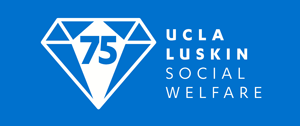 Social Welfare has much to celebrate after 75 years. Under the direction of Professor Laura Abrams, the current department chair, the department will be hosting celebratory events throughout the academic year, culminating with an on-campus gala May 6. Fittingly, the theme of the 75th anniversary celebration focuses on community engagement.
Social Welfare has much to celebrate after 75 years. Under the direction of Professor Laura Abrams, the current department chair, the department will be hosting celebratory events throughout the academic year, culminating with an on-campus gala May 6. Fittingly, the theme of the 75th anniversary celebration focuses on community engagement.